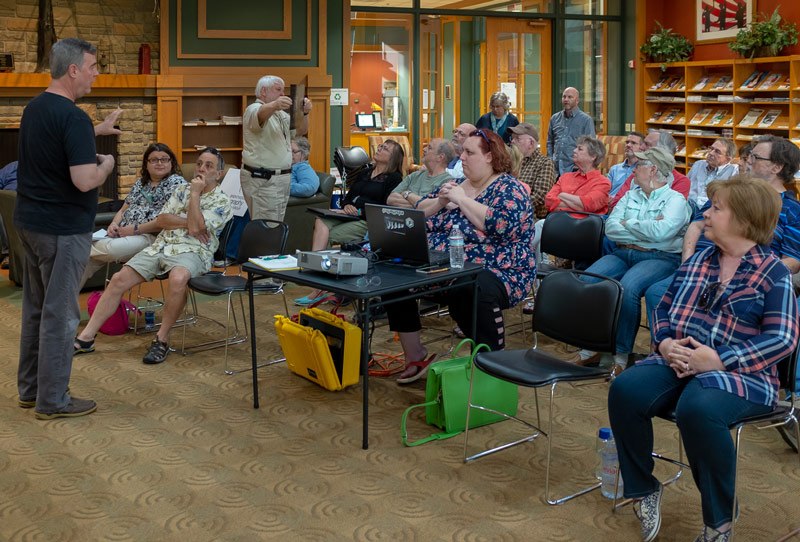Those words are so true! They remind me of my years-ago, now basic photography course at Nashville State Community College. The teacher invited us out into the hall to look at some framed pictures on display. They were interesting, well-done pictures, and professional-looking images. When we came back in, he asked us what cameras we thought were used; turns out that they were all made with disposable cameras. His comment after we were again seated: “If you don’t remember another thing in this class, remember this: it isn’t about the equipment.”
Camera companies—all of them—want us to think that a newer model, more advanced camera will mean better pictures. Don’t believe it! The fact of the matter is that any camera made today can take superb pictures if it is in the hands of someone who knows how to use it. And “knowing how to use it” goes far beyond what settings you choose. Of course, you must master settings. But becoming a good photographer really lies in knowing what it is we want to photograph, how to read the light, and how to decide what to include in the frame and what to leave out. How do you learn this stuff? There are many answers to that, but you may have missed “from other photographers.”
In this context, I invite you to consider our monthly “Mini Clinic.”
The Mini Clinic is now about 10 or so years old, beginning when Adobe first issued Lightroom and a group of us in the club wanted to know more. A little later, we wanted help on other topics and what we have now was born: a monthly session with a leader covering one of the aspects that go into getting better as photographers. The real genius of the Mini Clinic is that it takes place in a small room where everyone’s questions can be heard and answered, either by the leader or by a fellow photographer.
And over time, a wide variety of subjects has been discussed: composition, the characteristics of light, portrait photography, and even how to take good pictures with a cell phone. Last month, Robert McCurley led a photo critique of the work of some of us. (See the photo above.) There’s no question about our skills needing honing. So, we come for free or low-cost treatment as in a “clinic,” and in a small setting, as in “mini.”
Check it out.






Wonderfully said Ed, you captured the true essence of the Mini Clinic.
Yep – this blog business is right on the money.